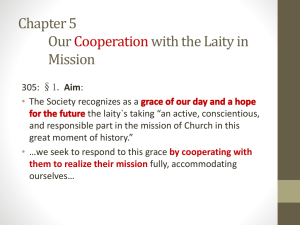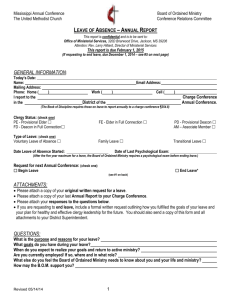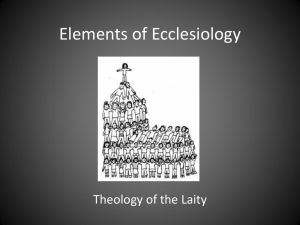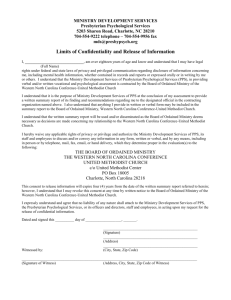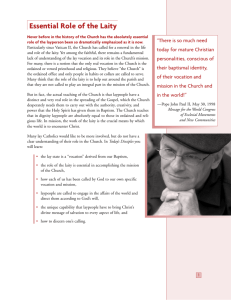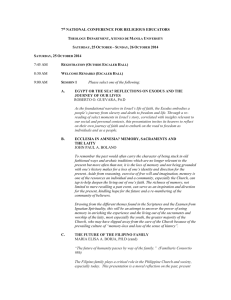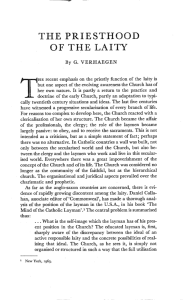Styles of Leadership: A Time for Sharing
advertisement
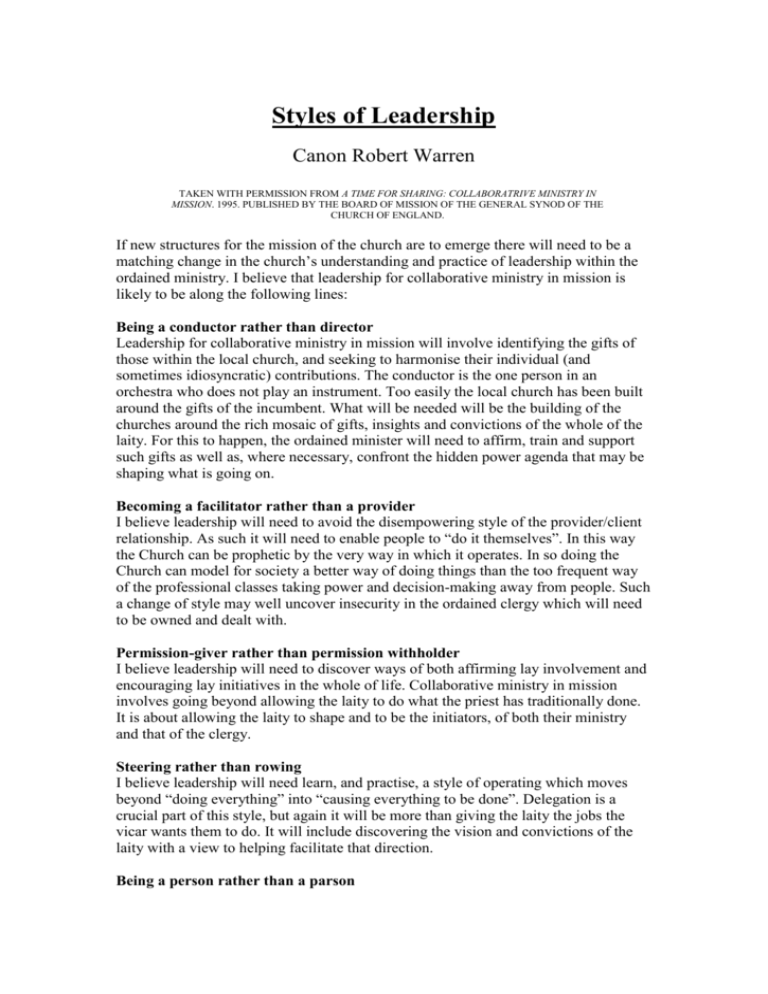
Styles of Leadership Canon Robert Warren TAKEN WITH PERMISSION FROM A TIME FOR SHARING: COLLABORATRIVE MINISTRY IN MISSION. 1995. PUBLISHED BY THE BOARD OF MISSION OF THE GENERAL SYNOD OF THE CHURCH OF ENGLAND. If new structures for the mission of the church are to emerge there will need to be a matching change in the church’s understanding and practice of leadership within the ordained ministry. I believe that leadership for collaborative ministry in mission is likely to be along the following lines: Being a conductor rather than director Leadership for collaborative ministry in mission will involve identifying the gifts of those within the local church, and seeking to harmonise their individual (and sometimes idiosyncratic) contributions. The conductor is the one person in an orchestra who does not play an instrument. Too easily the local church has been built around the gifts of the incumbent. What will be needed will be the building of the churches around the rich mosaic of gifts, insights and convictions of the whole of the laity. For this to happen, the ordained minister will need to affirm, train and support such gifts as well as, where necessary, confront the hidden power agenda that may be shaping what is going on. Becoming a facilitator rather than a provider I believe leadership will need to avoid the disempowering style of the provider/client relationship. As such it will need to enable people to “do it themselves”. In this way the Church can be prophetic by the very way in which it operates. In so doing the Church can model for society a better way of doing things than the too frequent way of the professional classes taking power and decision-making away from people. Such a change of style may well uncover insecurity in the ordained clergy which will need to be owned and dealt with. Permission-giver rather than permission withholder I believe leadership will need to discover ways of both affirming lay involvement and encouraging lay initiatives in the whole of life. Collaborative ministry in mission involves going beyond allowing the laity to do what the priest has traditionally done. It is about allowing the laity to shape and to be the initiators, of both their ministry and that of the clergy. Steering rather than rowing I believe leadership will need learn, and practise, a style of operating which moves beyond “doing everything” into “causing everything to be done”. Delegation is a crucial part of this style, but again it will be more than giving the laity the jobs the vicar wants them to do. It will include discovering the vision and convictions of the laity with a view to helping facilitate that direction. Being a person rather than a parson I believe that the primary sense in which a priest is an icon, or representative, of Christ, is in being reflections of his humanity: the incarnate Jesus. In this sense, being human is what Christianity is all about. The leaders need therefore to own and articulate their own sense of meaning, discovery of wholeness, and escape from addictions. Personal openness to change will be essential for such a living out of the Gospel.
